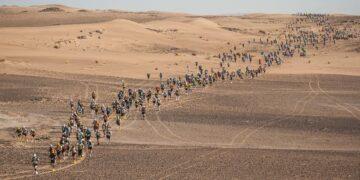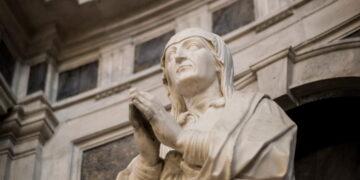Contents
Questo articolo è disponibile anche in:
The Middle East is on fire again. 2023 is protagonist of a new war after the widening of the Russian-Ukrainian conflict in February 2022. Palestine rose against Israel again on these first days of October. Al-Qassam brigades’ swift and effective strike allowed an unprecedented result for Palestinians: to penetrate into Israeli territory and to cause heavy human casualties.
Tel Aviv’s retaliation has been immediate, aiming to bend Hamas power on Gaza Strip once for all. Israel assures about an upcoming old-style invasion with boots on the ground. Meanwhile, Air Force’s bombings are razing Palestinian homes. The threat of a conflict regional expansion lingers around the air.
This upsurge is just the last of a long-standing conflict. The Arab-Israeli question is not this century’s news and not even last century’s. It is rooted in late-1800s with the birth of the Zionist ideology.
The rise of an ethnic-religious nationalism
The idea of a Jewish State was born at the end of the 1800s. Europe was in turmoil and the Congress of Vienna had not succeeded in quieting down the vitality of umpteen nationalisms in the Old Continent. New united States as Italy and Germany had just risen and meant to reconnect with past glorious state forms’ destinies.
The Jewish people was not immune to such sociocultural upheavals. It was scattered along many European regions, especially in Germany, Poland, Lithuania, Belarus and Ukraine. Even newly-founded cities like Odesa had a strong Jewish demographic and financial component at the turn of the century.
The historical incompatibility between Christianity and Judaism as well as the growing economical weight of Jewish communities caused European natives to collide with Ashkenazi elements. A new wave of pogroms took place, among which those occurred in 1881 all over southern Russia were some of the most violent.
The idea of a national movement based upon the ethnic-religious identity shaped up to be in the minds of many Jewish thinkers in the light of such turmoils. Leon Pinsker, Odesite Jewish medic, was the first to draft a work that would advocate for the making of a Zionist entity.
He published in 1882 a pamphlet named “Self-determination” in which he stated that a territory for the Jews was the only possible solution so that his people could gain dignity and power away from the resistance of native Europeans. Pinsker did not believe that a return to Palestine had to be mandatory, but he was prone to take even other regions into account in order to establish a new State.

This highlighted the chief axiom of the Jewish identity, namely that ethnos survives by itself in virtue of a common religious and ethnical belonging beyond a certain territory. In fact, the diaspora had made Jews a people without a homeland, used to living in small or big communities in foreign lands.
Pinsker’s ideas initiated the first aliyah (immigration wave) to the Holy Land that was seen as an ancestral land to be colonized and reconquered by most of Zionists, unlike the Odesite’s opinion. The organization “Lovers of Sion” was established. It dealt with directing the first packs of colonists in Palestine. Such an organism was just the first of many that wide opened the doors to a systematic and rationalized immigration.
Theodor Herzl
The great change of pace occurred thanks to the positions of Theodor Herzl, a Viennese Jewish journalist. In 1896 he wrote his essay “Der Judenstaat” (The Jewish State) in which he called for the creation of a Jewish state, aimed at relegating to the past the oppression, struggles and difficulties encountered by Jews in Europe.
Herzl’s concept of the State was based on the experience of the French Revolution and, at least in the early stages, it was not necessarily linked to a genesis in Palestinian land. The more mystical and religious stream, however, quickly took over.

During the first Zionist congress in Basel in 1897, Herzl’s propositions were sealed with the creation of the World Zionist Organization which explicitly focused to create a homeland for the Jewish people in Palestine. The majority of members had indeed a more romantic and millenarian vision.
On the one hand, nationalist fascinations saw Zionism as the fruit of the eternal spirit of the nation. On the other hand, the typical religious predestination of the “chosen people” dictated the reconquest of the land of Israel to rebuild the Temple of Jerusalem destroyed by Tito’s legions in 70 AD. and thus allow the coming of the “true” messiah.
The path had now been traced. The subsequent pogroms of 1905 following the failed Russian Revolution of that year, in which many Jews actively took part, resulted in the second aliyah which sped up the building of the Jewish State’s foundations in Palestine.
The construction of Israel
World War I was the first major opportunity for both Zionists and Palestinians to aspire to sovereignty. The British were soon interested in secret agreements regarding the dismemberment of the Ottoman Empire, whose ambitions were made official with the Sykes-Picot agreement of 1916 between France and Great Britain. London chose doubledeal. Relations were first established with Hussein, sheriff of Mecca.
The Hashemite would fight against the Ottomans and in exchange the British made promises of an unspecified Arab independence. Great Britain played on the misunderstanding of the respective categories. The pan-Arab ideal regarded Palestine as an integral part of Greater Syria, but this was never explicitly mentioned by Crown’s officials.
Despite repeated Arab military actions, also coordinated by legendary Lawrence of Arabia, the English did not keep their promises at the end of the hostilities. Palestine became an English protectorate, while the rest of the Near East ended up being divided between Paris and London.
The Zionists, however, were able to assert their claims better. This was also possible thanks to the presence of various influential members in the British imperial society in early 1900s. Among these, chemist Chaim Weizmann exerted strong pressure on the British government to achieve the so longed state by Zionism.
He was among those scientists who were vital for the synthesis of acetone, an essential process for explosives production. Weizmann finally managed to extract a written statement from former Prime Minister Arthur Balfour. The Balfour Declaration of 1917, thus passed into history, was also sent to powerful Lord Rothschild as a proof of its contents’ future implementation.
In it, “His Majesty’s Government viewed with favor the establishment in Palestine of a national home for the Jewish people.” Neverthless, it was also specified that the Crown would not prejudice the civil and religious rights of non-Jewish communities. This neutral ambiguity shown by Balfour, however, turned out to be the first legally consistent step towards the creation of the State of Israel.

Those who know history know this well: a concession is almost always the springboard towards a process of enlargement and remodulation of the initial status. With the victory of the Entente in the First World War, the English were able to administer Palestine and fulfill the promises granted to the Zionists who immediately did their utmost to persevere in their plans.
The first High Commissioner for Palestine, Sir Herbert Samuel, was concerned with finding a balance between Palestinian Arabs and Jews. Practically, he did nothing other than favoring Jewish settlement and colonization, leaving the field open to the rational coordination of the Jewish National Fund and the Jewish Colonial Association.
The systematic rapid increase in Jewish settlers quickly led to the first clashes between Palestinians and Jews in 1921 with the Nabi Musa riots. The Arab-Israeli question had officially begun. The Arabs began to fight hard to defend their land and interests.
Many other clashes, including the Wailing Wall riots of 1928 and the Great Arab Revolt of 1936, were only a preview of the various wars that subsequently occurred between the Arab world and the State of Israel in the aftermath of Tel Aviv’s independence in 1947.
The Arab-Israeli question today
The violent escalation in the recent weeks in the Holy Land is, therefore, only the latest in an unsolvable issue that has been going on for more than a century. As you can imagine, what makes it so are non-negotiable axial positions for both parties. The exclusivist idea of the Jewish State, surrounded by the belief of some fringes that they are invested with a divine mission of superiority over other peoples, is of an exquisitely ethno-religious origin.
Belonging to the American-centric Western world with its episteme and customs plays a far from secondary role in creating an even clearer split between Israel and the Arab world. On the other hand, the Islamic world cannot essentially accept the legitimacy of the Jewish state.
The 1993 Oslo agreements and the policies of relation normalization between Arab states and Tel Aviv should be deemed more as temporary and Realpolitik decisions that have never reflected a sincere sense of compromise (and, in reality, capitulation) of the Islamic umma . For the average Muslim and a large part of their political elite, the appropriation of Palestinian land by Zionist Jews is a denial of their raison d’être.
The repeated abuses and conflicts between the two sides have only confirmed their mutual incompatibility. Rebus sic stantibus, a diplomatic solution and/or permanent coexistence is irreconcilable with the ousia of both sides.
Global tension is growing ever more dramatically. The West is in decline and does not want to give up its predominance inherited from the end of the Cold War. The East, rapidly expanding and increasingly alien to Western globalist assumptions, claims a position of greater importance and effective sovereignty.
The confrontation between Hamas and Israel is just another act in what appears to be “a piecemeal world war”. The future will tell whether these pieces will be brought together into a real generalized conflict.


















